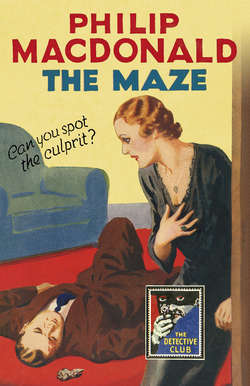Читать книгу The Maze - Julian Symons - Страница 7
PREFACE
ОглавлениеI HAVE given this book the subtitle of ‘An Exercise in Detection’.
I have used the word ‘exercise’ deliberately; I mean it to be an exercise not only upon my part, but upon the part of any reader who may have the tenacity to get through it. In Parts Two, Three and Four of the book—the actual evidence of the witnesses upon the first time of their calling and the summing up of the Coroner—is contained all the information upon which Gethryn has to work. In other words, you, the reader, and he, the detective, are upon an equal footing. You know just as much as and no more than he knows. He knows just as much as and no more than you. He finds out: could you have found out without his help?
I should like to emphasise that although, for the sake of ‘balance’ and of avoiding tediousness, part of the evidence (that is, the re-examination and re-examination of the witnesses) has been omitted, none of this evidence was anything except repetitive. Gethryn, in fact, was not supplied with this repetitive evidence, as is shown by the note to him from Lucas. What Gethryn had is what you have. From what you have he made his deductions.
I have frequently been annoyed—as any reader of the analytical type of detective fiction must have been annoyed—by books in which the detective holds an unfair advantage over the reader in that he has opportunities which the reader cannot share. He may, for instance, in Chapter II ‘dash up to London and spend two hours there.’ And then the reader, not having been allowed to see what the detective did during those two hours in London, is at a disadvantage. Again, in Chapter XVII, the detective may suddenly, in a foully offhand and altogether offensive manner, ‘pick some small object off the ground’ which he puts in his waistcoat pocket and doesn’t say anything more about until Chapter XXIII, when it forms the basis upon which his whole case is founded. Again the reader has been subjected to the most dastardly unfair play!
In this book I have striven to be absolutely fair to the reader. There is nothing—nothing at all—for the detective that the reader has not had. More, the reader has had his information in exactly the same form as the detective—that is, the verbatim report of evidence and question.
This is a fair story. If you get the right answer—not merely a ‘guessed’ answer, but an answer for which you are prepared to put forward reasons—then you are as good at this job as A. R. Gethryn. If you don’t, you are not. In either case I think you should be satisfied—unless, of course, you find the whole business too impossibly easy, in which case you ought—if you are not indeed already one—to become a really big noise at Scotland Yard.
PHILIP MACDONALD
1932
